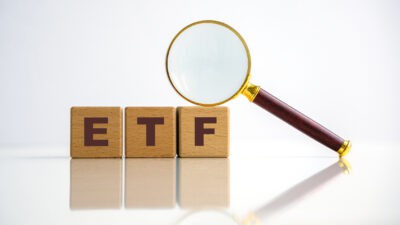I strongly believe that the best place for any Australian's money over the ultra-long-term is (ASX) shares. You don't need to take on debt to buy shares and they have proven to deliver the strongest returns over time. ETFs can offer easy investing and good returns as a way to access shares.
Most investors reading this article will have a good understanding of the businesses on the ASX, but it's much harder to be knowledgeable about the other 98% of the shares listed around the world.
The easiest way to get exposure to overseas investments could be through an exchanged-traded fund (ETF). These funds can give diversification to a whole range of good quality shares, with a low management fee.
These two are good contenders for your portfolio:
Vanguard MSCI Index International Shares ETF (ASX: VGS)
You can't get much more diverse than this ETF offered by Vanguard. It's invested in nearly 1,600 business that are listed across the world in the US, Japan, the UK, France, Canada, Switzerland, Germany, Hong Kong, the Netherlands and so on.
With this ETF you still get exposure to all the great US tech giants like Apple, Microsoft, Amazon, Alphabet and Facebook as well as other great businesses like Berkshire Hathaway.
Since inception in November 2014 this ETF has delivered an average return per annum of 10.8%.
If you're thinking too much of this portfolio is invested in IT then don't worry – 'Financials' is the biggest sector allocation, then IT, then Healthcare and finally Consumer Discretionary is the last one to have more than 10% allocated. It's much more diverse industry-wise than the ASX.
As a bonus, it has a dividend yield of 2.5%.
BetaShares NASDAQ 100 ETF (ASX: NDQ)
But, if all you want is more exposure to the FAANG shares in the US then this ETF could be the better choice.
BetaShares is a specialist ETF provider, this particular ETF gives exposure to 100 of the biggest shares on the NASDAQ. Of course, that means exposure to Microsoft, Apple, Amazon, Facebook and so on, but with a much higher allocation than the MSCI index, the shares I just mentioned each account for 8.5% or more of this index.
This has been a high-performing fund. Since inception in May 2015 it has generated an average return per annum of nearly 15%. This could keep going with large growth avenues into the future such as Google's automated cars, and Facebook with Instagram and Whatsapp which are being underutilised.
Foolish takeaway
I think that both of these ETFs could deliver better returns than the ASX index over the long-term due to their global nature and the fact that the underlying businesses are re-investing more earnings back into the business for future growth.







